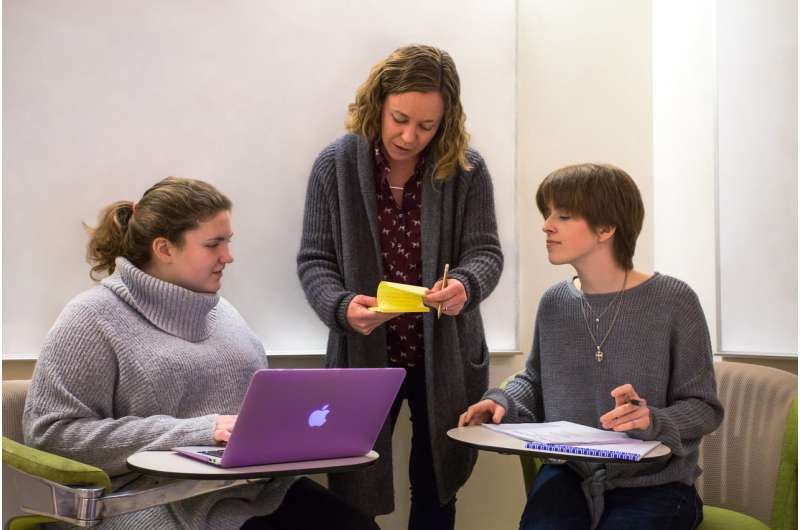Criminologist, student team build database on US school shootings

A criminologist and her students at The University of Texas at Dallas are creating a database that tracks shootings at K-12 schools in the United States going back to 1990.
Dr. Nadine Connell, associate professor of criminology in the School of Economic, Political and Policy Sciences, said the National Institute of Justice project aims to fill a need for reliable data on gun violence on school campuses.
"Our goal is to help law enforcement and school administrators better understand the causes of K-12 school violence," said Connell, who also serves as director of the Center for Crime and Justice Studies. "Understanding school violence is the first step to finding effective prevention strategies."
Two criminology PhD students and three undergraduate students, two majoring in computer science and one in biology, are working on the database. The project is part of a grant led by researchers at the John Jay College of Criminal Justice at The City University of New York, involving UT Dallas and Michigan State University. The grant was awarded through the National Institute of Justice's Comprehensive School Safety Initiative.
Connell recruited the undergraduate researchers from an honors course she taught last fall on school violence. The students are searching public records and news articles for details surrounding every incident in which someone has been injured or killed by a firearm on a K-12 campus since 1990. Researchers, who began the project last year, expect to finish collecting the data by the end of the year and will continue to add to the database as new incidents occur.

Connell said the lack of reliable data on school violence limits the ability for authorities to understand the factors that lead to mass shootings.
Most recently, 17 people were killed at Marjory Stoneman Douglas High School in Parkland, Florida. In subsequent news coverage, media outlets reported varying figures on the number of recent school shootings. Some reports included other types of gun-related incidents on campuses that many would not associate with school shootings, such as suicides, domestic violence incidents, accidental firearm discharges or completely unrelated incidents, Connell said.
She also said that the many different types of gun-related threats on school campuses require different solutions.
"We don't think there's a one-size-fits-all answer to this," Connell said. "While there certainly are tragic events we call school shootings, there are a lot more day-to-day events that have policy implications for school administrators, and they need information to know how to address them. We don't want to miss some early warning signs and the kind of threats that could lead to major tragedies."
Sarah Gammell, a PhD student in criminology who oversees the undergraduate researchers, said this type of research is rewarding.
"The world is looking for solutions and answers, so for me, it is great to be part of a dynamic team working on this data," she said. "We are actively starting to piece it together to help shape some of the policies that will be influenced by these events."
Provided by University of Texas at Dallas


















